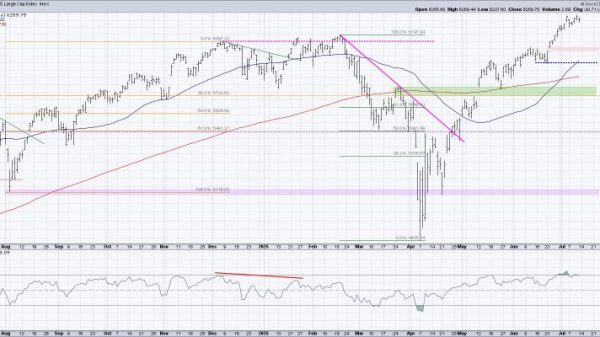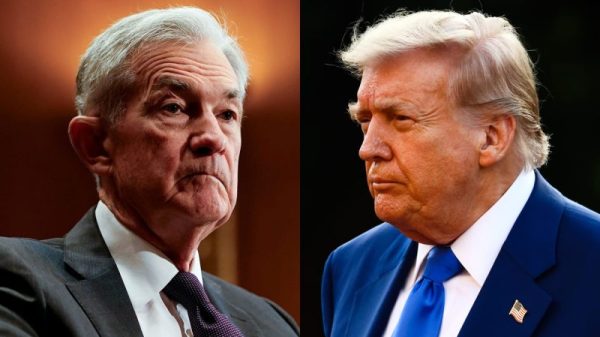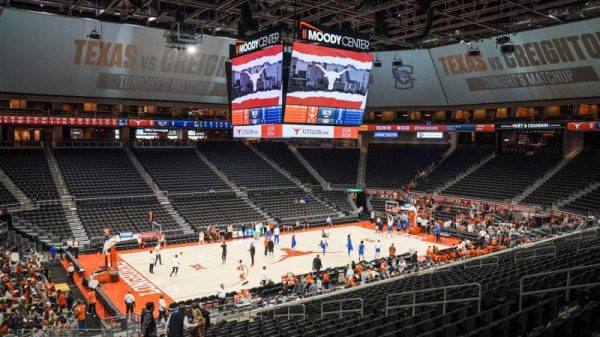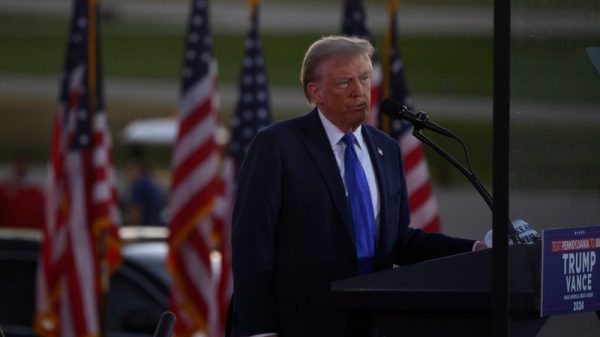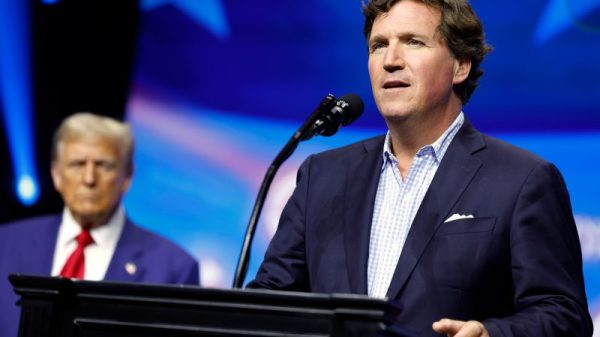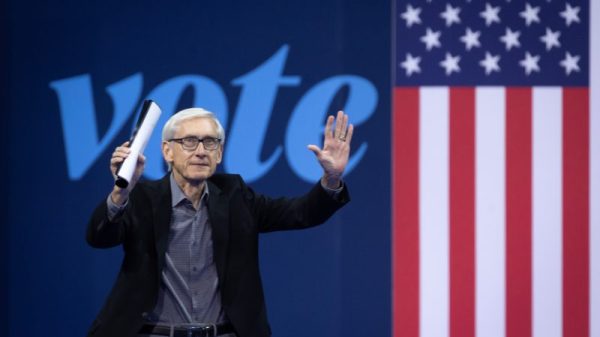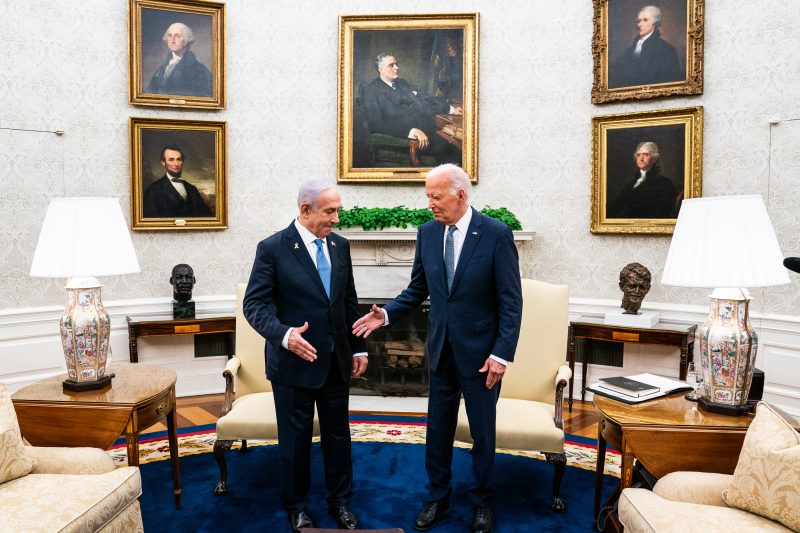The applause was loudest at the beginning, when Prime Minister Benjamin Netanyahu declared to a joint meeting of Congress that Israel “will win” in its fight against Hamas. They applauded, too, when he spotlighted the resilience of those who remain hostages in Gaza and lauded the bravery of the Jewish state’s front-line soldiers.
Far fewer stood and cheered when he spoke of his “vision” for the Palestinian territory’s future.
To many Democrats who’ve been critical of Netanyahu, the Israeli leader merely confirmed what they already knew.
“In fact, [he] doubled down,” said Rep. Jason Crow (D-Colo.), who watched Wednesday’s address from the back of the House chamber. It’s “absurd … to think that doing more of the same is going to deliver a different result,” he said.
Nearly 10 months into Israel’s Gaza offensive, amid deepening frustration from the Biden administration and isolation on the world stage, Netanyahu made no gestures toward compromise. There was no talk of Palestinian autonomy. No discussion of Palestinian rights to life and freedom. No attempt to address the grievances that have fueled Palestinians’ decades-old anger toward Israel.
Instead, he spoke of a “demilitarized and deradicalized” Gaza; a Gaza under Israeli control “for the foreseeable future.”
“This is the moment for the leader of Israel to lay out a vision for the future,” Sen. Peter Welch (D-Vt.) recalled thinking as he watched the speech on a TV in his office, one of more than 50 Democratic lawmakers who boycotted the address. But “he didn’t. He offered no road map.” He hadn’t changed a bit, Welch said.
The Biden administration has for months sought to negotiate an ambitious, three-phase peace agreement to end Israel’s war in Gaza, with the White House asserting amid Netanyahu’s Washington visit that the negotiating parties were closer “than we’ve ever been before” to agreeing on a short-term cease-fire and initial hostage release. The next step, according to Biden, would involve negotiations over a permanent end to the fighting and full Israeli withdrawal from Gaza, along with the release of all remaining hostages.
It’s phase three of the plan, which would culminate in new Palestinian governance, security, rebuilding and a path to statehood, that is the most essential ingredient to the success of any long-term peace, experts say.
But if the concept of a viable Palestinian future wasn’t one of Netanyahu’s considerations before the war, which began with October’s deadly Hamas attack into Israel, his remarks in recent days left little reason to believe that anything in his thinking has changed.
“Obviously he didn’t talk at all about a long-term plan for the Palestinians because Netanyahu has effectively renounced a Palestinian state,” said Sen. Chris Murphy (D-Conn.), who chairs a Senate subcommittee focused on the Middle East. “I think his plan for a while has been to have no workable plan.”
Liberal Democrats on Capitol Hill who have grown more frustrated with Israel’s conduct over the course of the war have begun to acknowledge that the Israeli government has largely foreclosed on phase two of the peace plan as well.
Satellite imagery, witness testimony and the comments of military commanders have shown for months that preparations are underway for a long-term Israeli presence in Gaza. In recent months, Israel fortified a strategic route, known as the Netzarim Corridor, that carves Gaza into two and allows for the quick deployment of Israeli troops throughout the territory.
Israeli forces have razed homes and bulldozed acres of farmland to create and expand buffer zones along their strategic corridor, and along Gaza’s borders with Israel and Egypt. Israeli commanders have talked about a plan for “full freedom of operation” for their forces. They have churned earth and rubble into defensive berms. And they have begun building military bases and transforming seized buildings for other military purposes.
Even as Biden administration officials insisted this week that they are close to securing a deal between Israel and Hamas, officials also quietly acknowledged that Netanyahu has continued to put demands on the table.
After meeting with the prime minister Thursday, Vice President Harris, who is set to replace President Biden atop the Democratic presidential ticket, urged the warring parties to “get the deal done” so that negotiators can move on to subsequent parts of the peace plan and “we can get a cease-fire to end the war.”
Netanyahu’s national security minister Itamar Ben Gvir, who along with Israel’s finance minister, Bezalel Smotrich, opposes a cease-fire deal and has called for building Jewish settlements in Gaza, responded to Harris on social media. “There will be no truce,” he proclaimed.
Observers say Netanyahu’s political survival depends on both men.
The split screen between the administration’s projected optimism about an agreement and the reality in Gaza has both frustrated and baffled some Washington analysts.
In recent months, as the Israeli government has defied Biden in Gaza, and as Smotrich and far-right allies have accelerated Israeli settlement expansion in the occupied West Bank, administration officials have alluded to a willingness by Israel’s Arab neighbors to play a role in Gaza’s future governance and security. Some have suggested that a revitalized Palestinian Authority — the weak, corrupt and deeply unpopular governing apparatus in the West Bank — might even run Gaza.
“With a deal, a rebuilding of Gaza will begin [with] Arab nations and the international community, along with Palestinian and Israeli leaders, to get it done in a manner that does not allow Hamas to rearm,” Biden said in the May address, when he laid out his three-phase peace plan.
“This question of what comes next, what comes after this conflict, is one that we have discussed extensively with our Arab partners, with the Palestinians, with the Israeli government over the course of the last four or five months,” Barbara Leaf, the assistant secretary of state for near eastern affairs told lawmakers in June. Leaf acknowledged that the Palestinian Authority was facing a “severe financial crisis” because Israel controls its revenue flow and had largely restricted it since Oct. 7.
“The Arab world is horrified by what’s going on,” Yousef Munayyer, an expert on the Israeli-Palestinian conflict at the Arab Center Washington DC, a think tank, said in a recent interview casting doubt on the path advocated by the president. “The idea that they’re going to somehow flip a switch and think that there’s going to be some sort of transformational deal — I don’t know what planet you’re looking at this from.”
Loveluck reported from Jerusalem.








